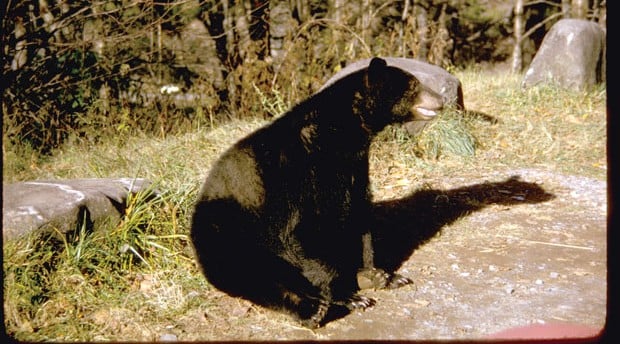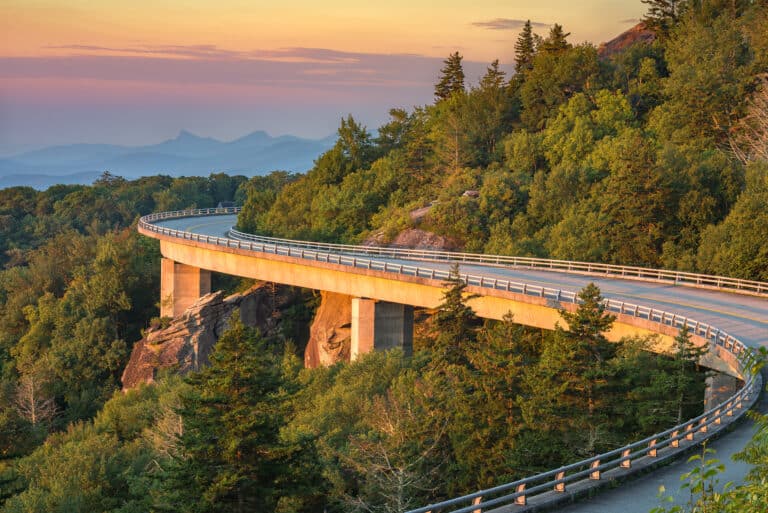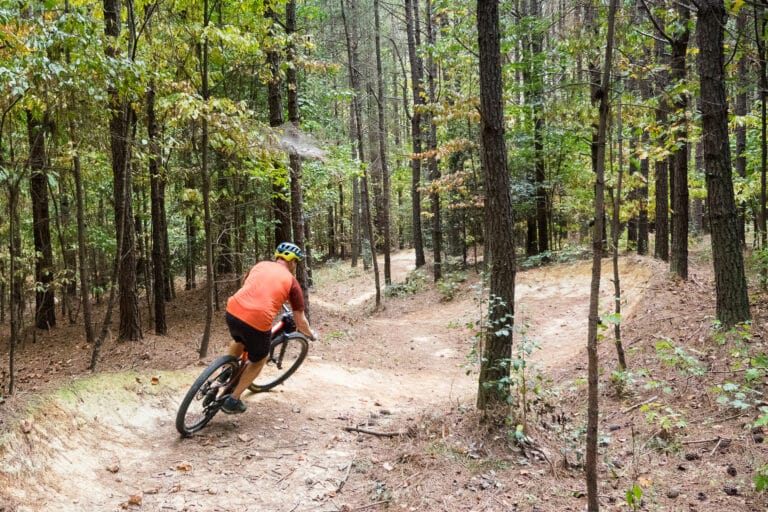Photo: John Manuel
The U.S. Forest Service suspended camping in the Shining Rock Wilderness in Pisgah National Forest last fall because of a series of bear encounters with backpackers. Campers reported multiple incidents of bears climbing trees to retrieve hung bear bags.
“I don’t think we’ve ever had to close camping in Shining Rock before,” says Pisgah District ranger Derek Ibarguen. “There was one incident when the bear made contact with a tent. That’s too close for comfort, so we decided to suspend camping until winter.”
Similar bear encounters were reported all over the Southeast in 2012. Black bears tore apart properly hung bear bags last fall in Panthertown Valley, prompting the Nantahala National Forest to release a bear alert for the valley. Great Smoky Mountains National Park closed two backcountry camping areas because of bear activity. And in Georgia, increased bear activity in the Blood Mountain Wilderness has prompted a new U.S. Forest Service rule requiring approved bear-resistant storage containers for camping on a five-mile stretch of the A.T. through the Wilderness during the spring.
“We’re definitely seeing an upward trend in bear/human encounters in the backcountry,” says Mike Carraway, a biologist for the North Carolina Wildlife Commission. “We have a healthy bear population in the mountains. At the same time, more people are recreating in those mountains, so bear interactions are inevitable.”
Carraway says that bears are both smart and creatures of habit. If they’re rewarded by a certain behavior, like climbing trees to get hung food, they’re likely to repeat that behavior.
“In the past, we haven’t had many problems with bears going after food in campsites or up trees, but we have more bears in the forest now and more people camping,” Carraway says. “So we’re seeing more bears climb trees after hung bags, and more bears entering campsites.”
Spring is typically the most active season for bears, as they forage for food after exiting their hibernation dens in March. But there’s no reason for backpackers to fear the backcountry. Take the proper precautions to remove the allure from your campsite, and backpackers and black bears can coexist without incident.
“The key to reducing your chances of seeing an unwelcome bear is proper food storage,” says Steven Westcott, spokesperson for Pisgah National Forest. “We have bear encounters every year, but most cases are when food is left in the tents or near a cooking area.”
Here’s a simple guide to creating a bear-proof campsite in the backcountry.
The golden rule: Don’t carry anything with a scent into your tent with you: no candy bars, no toothpaste, no lip balm. Bears love lip balm.
Properly hang your food bag: Finding the right tree is key. You need to be able to hang the bag 12 feet off the ground and at least three feet from the trunk, so the bear can’t climb for it. The bag should also be 100 feet from your tent.
Cook somewhere else: Cooking at the fire ring beside your tent creates all kinds of tempting smells for black bears. Instead, consider cooking along the trail before you set up camp. At the very least, have a separate “cook site” 100 feet from your tent where you cook your meals. This will keep all alluring smells away from your tent.
Three sites: If you’re taking all of the precautions, your campsite should actually be a collection of three sites (your tent, your cook site, and your food bag) all spaced at least 100 feet apart.
Hang it or Can it?
Many Western parks and forests require backpackers to store all of their food in an approved bear canister—hard plastic barrels that are air tight and stored a safe distance from the campsite. The Chattahoochee National Forest in Georgia has issued this requirement for a section of the A.T. that has a heavy bear population. Should all backpackers switch to bear canisters instead of hanging their bags?
“It might be appropriate for the forest service to require bear canisters in certain sections of the forest at certain times of the year,” says Mike Carraway. “But there’s no reason for a forest-wide rule requiring canisters at all times.”
Still, the bear can might be worth your consideration. Canisters have proven to be more “bear proof” than hanging bags. The downside? They’re an added cost many backpackers don’t want to pony up, and they add a couple of pounds to your pack.








